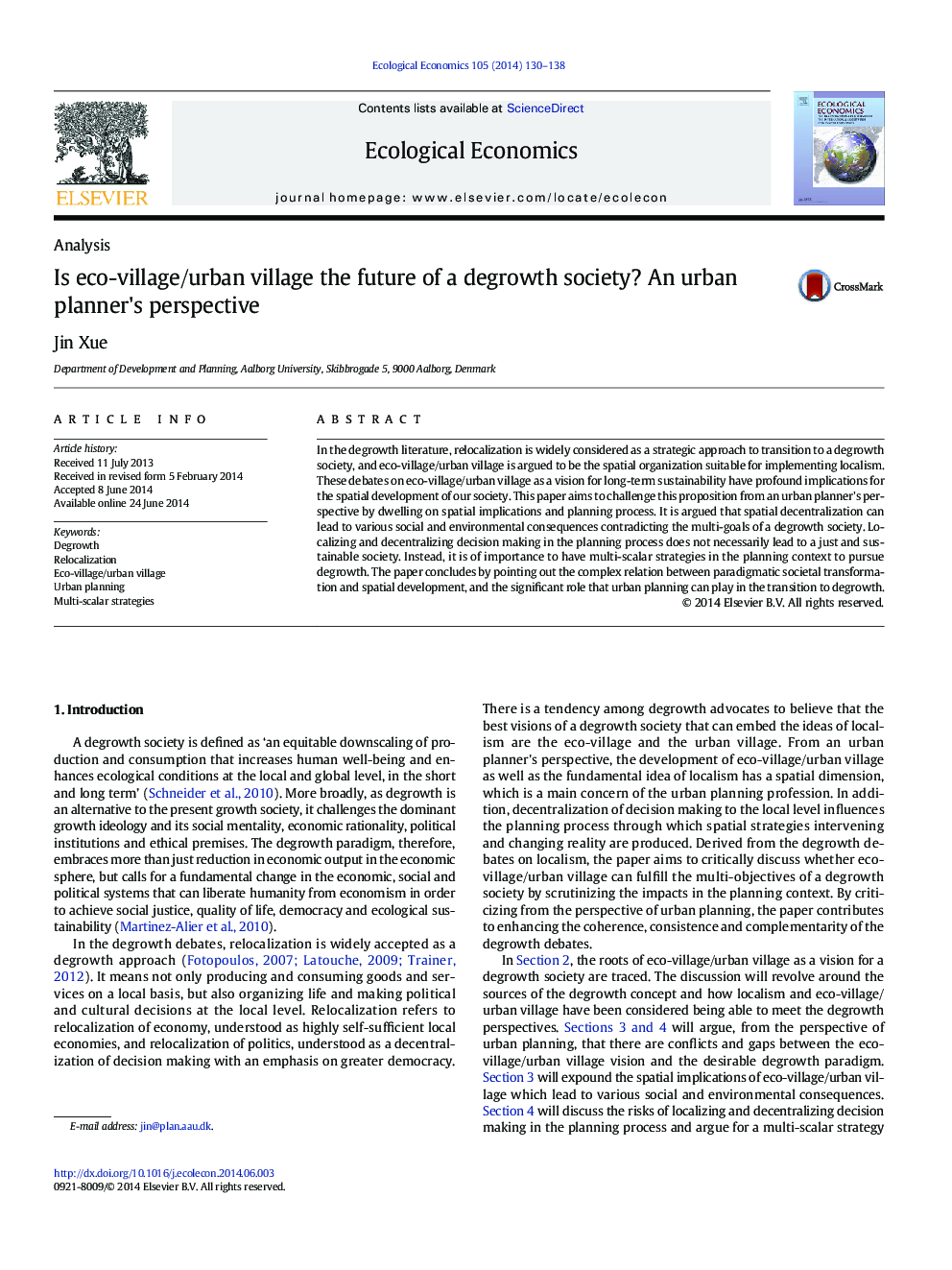| Article ID | Journal | Published Year | Pages | File Type |
|---|---|---|---|---|
| 5049711 | Ecological Economics | 2014 | 9 Pages |
In the degrowth literature, relocalization is widely considered as a strategic approach to transition to a degrowth society, and eco-village/urban village is argued to be the spatial organization suitable for implementing localism. These debates on eco-village/urban village as a vision for long-term sustainability have profound implications for the spatial development of our society. This paper aims to challenge this proposition from an urban planner's perspective by dwelling on spatial implications and planning process. It is argued that spatial decentralization can lead to various social and environmental consequences contradicting the multi-goals of a degrowth society. Localizing and decentralizing decision making in the planning process does not necessarily lead to a just and sustainable society. Instead, it is of importance to have multi-scalar strategies in the planning context to pursue degrowth. The paper concludes by pointing out the complex relation between paradigmatic societal transformation and spatial development, and the significant role that urban planning can play in the transition to degrowth.
